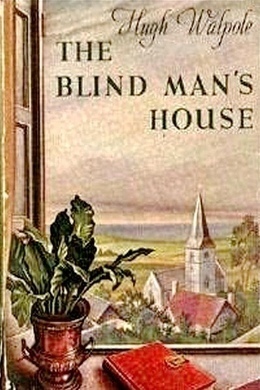
-
EPUB 358 KB
-
Kindle 472 KB
-
Support epubBooks by making a small $2.99 PayPal donation purchase.
This work is available for countries where copyright is Life+70 or less.
Description
The Blind Man’s House is Walpole’s last book before his death. A psychological study of a village and the people who come into contact with a blind man and his young bride.
439 pages with a reading time of ~6.75 hours (109988 words), and first published in 1941. This DRM-Free edition published by epubBooks, 2014.
Community Reviews
There are currently no other reviews for this book.
Excerpt
She was frightened. The fear was as sudden and, in one sense, as unexpected as an unheralded sharp stab in the breast. And yet not unexpected, because it had been hovering near her, almost out of her consciousness but not quite, for many weeks.
They were at the Cross-roads. Pelynt Cross. She knew where they were, for Julius had told her and in her hands was a map. The Cross-roads. Pelynt Cross. You can smell the sea here, Julius said. She sniffed through the open window. Yes, she could smell it. On a clear day you could catch a glimpse of the sea from the Cross, which stood naked and bare on the edge of the Moor. But today you could not see far because of the summer honey haze which veiled the world in trembling heat.
The car had stopped for a moment while Curtis hesitated. Then he saw the finger–‘Garth in Roselands 1 1⁄2 M.–Rafiel 10 M.’ To the left of them ran Pelynt Moor for miles and miles. The light enwrapped it and struck at fragments of quartz, at rough white stones. It seemed to shake with voluptuous pleasure at being thus enwrapped. The air through the window smelt of honey and gorse.
The car went on. She had taken off her hat, and the short curls of her dark hair moved in the breeze. She had thrown back her coat, and her body drank in the heat. She loved, she LOVED the sun! She looked quickly across to Julius and then quickly back again. Was he asleep? Who could tell? His eyes were closed, but that meant nothing at all. She had been married to him for six months, and yet about a matter like that she could not be certain. His big body sprawled against the corner of the car. He too had taken off his hat, and his hair, so fair a yellow that in certain lights it seemed white, moved a little against his forehead.
His face, which she loved so dearly, was composed and calm. Why had she been frightened? Was it because she was coming to a new place? No. She was never frightened of a new place. She loved new places and new people because she always conquered them with her charm. She did not pride herself on her charm. She had no conceit. But she was pleased, as anyone would be, with its effects.
Was it because her new home was his OLD home that she was frightened? No. Anything that was his was hers. He gave her everything freely, abundantly, completely. She would never feel a stranger where he was.
Was it because of herself that she was frightened? She sat up very straight and looked out of the window, shaking her little head as though she would have the sun penetrate and enrich the curls.
Well, what about herself? For six months she had made Julius so happy that he told her he was ‘mad’ with happiness. She had behaved well. She had lost her temper only twice, once with that silly old Mrs. Gayner, the housekeeper whom Julius adored so. Only once had she broken something and then it was only a glass–old it was, but you could always find another like it. She had forgotten engagements scarcely at all and had shown impatience with tiresome visitors very seldom. She could not help it if she showed her feelings clearly. That was her character. After all, she loved people twice as often as she hated them. She had tried in every way to make herself a good wife and she had succeeded.
Was she frightened because he was fifteen years older than she? The husband ought to be older than the wife. When Julius was sixty she would be forty-five, an old, old woman.
Was she frightened because he had been married before? Oh, these were ancient questions! She had asked them before and found happy answers to all of them. Wasn’t Julius the kindest, noblest, most loving, most tender, most unselfish of men? Didn’t she look up to him and admire him dreadfully, and didn’t she, in spite of that admiration, find him a friend and a companion? Was he ever a bore? No. Never, never! Never a bore. But …
Yes, now they were coming down the hill, and that lovely wood, sparkling like a dark fire, must be the Well. Julius had told her about the Well. It was the most famous wood in all Glebeshire for primroses. They left the wood and climbed the hill, and now the salt wind from the sea really met them, fresh and taut and vigorous in spite of the blazing heat of the summer afternoon. Into endless distance now stretched the Moor. You could hear the telegraph wires singing.
No. Julius was never a bore, but …
She heard him move, push out his great chest as though he would drink in the sea air, put his hand to his hair. His blue eyes were wide open. He smiled.
She knew why she was frightened.
